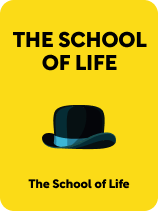

This article is an excerpt from the Shortform book guide to "The School of Life" by The School of Life. Shortform has the world's best summaries and analyses of books you should be reading.
Like this article? Sign up for a free trial here.
Why is there a lack of emotional intelligence in relationships? What is Romanticism and how does it affect relationships?
According to The School of Life, emotional intelligence is missing in most modern relationships because we’ve developed an unhealthy view of love and marriage. The authors argue that, rather than focusing on emotional intelligence, most relationships focus on Romanticism, which is unrealistic and unhealthy.
Read on to learn more about the lack of emotional intelligence in relationships, according to the authors.
The Lack of Emotional Intelligence in Relationships
The authors of The School of Life argue that, because we’re not taught how to understand and cope with our feelings and the feelings of others, this leads us to make poor decisions and to be miserable in life. However, by developing emotional intelligence across several realms of life, you can better understand yourself and feel more satisfied. Specifically, the authors describe the importance of overcoming a lack of emotional intelligence in relationships, arguing that today’s society has primed us to focus on Romanticism over emotional intimacy.
In this article, we’ll explain why the authors claim that emotional intelligence is missing in most of today’s relationships.
Why We Fail to Develop Emotional Intimacy
We often fail to develop emotional intelligence in our relationships because our conception of love is almost completely defined by the 18th-century intellectual and artistic movement, Romanticism. Among other things, Romanticism proposes the following:
- Marriage should be both emotionally and sexually fulfilling and also a practical living arrangement. It assumes after 30 years of marriage that you’ll feel the same way about your partner as you did when you first met.
- You should marry for love and not for financial or other considerations; thinking about finances and other practical questions is inappropriate and unromantic.
- You should love and accept every aspect of your partner.
| An Alternative to Romanticism In The Defining Decade, Meg Jay proposes a view of long-term relationships that’s dramatically different from the above Romantic ideas. Her book is written for people in their 20s who face important decisions like whom to date, live with, and settle down with. Jay’s advice is therefore highly practical and based on research. Let’s look at how her recommendations veer from Romantic philosophy. People often slip into marriage passively: Jay argues that the Romantic belief in the infallibility of marriage is misguided. According to her, people often only get married because they feel they’ve already invested so much time into the relationship that it would be a waste to back out—not because they derive complete emotional and sexual fulfillment from the relationship. What’s more, many couples don’t understand how stressful marriage will really be, and often the added pressures (kids, bills, and so on) change the relationship or make it impossible to feel the same way about your spouse. You shouldn’t date people who are less mature than you: Jay recommends not dating someone you believe you’d have dated at an earlier stage of your life when you were less settled and mature. An extension of this idea is that, contrary to Romantic beliefs, it’s OK to consider another person’s career goals and financial maturity. Actively seek out compatible personalities: Jay advises you look for people who have personalities that mesh well with yours as a way to minimize the amount of life choices you disagree on. However, Jay doesn’t say that you can ever find the perfect personality match or that you have to love every facet of your partner’s personality. There will always be differences, and you have to learn how to resolve them, not pretend they’re not there. |
The authors contend that Romanticism and the unrealistic expectations it places on intimate relationships have made it difficult to have healthy relationships. But when you know that your ideal of a successful romantic relationship is flawed, you can forgive yourself for not meeting it and develop a more workable approach to romance by building your emotional intelligence.
(Shortform note: Some feel that the influence of Romanticism has declined in contemporary society and that today, people are indeed taking a more practical approach to love. Polls show that only 44% of Millennials were married in 2019 compared to 62% of baby boomers when they were a similar age. Some believe this is because Millennials have higher standards for partners and would rather wait for someone with the right qualities. While this sounds as if it applies the attributes of emotional intelligence, such an approach to relationships could also be interpreted as Romantic. Thinking there’s a near-perfect person out there for you and that you’d rather wait for them than settle for someone decent could be seen as more Romantic than sensible.)

———End of Preview———
Like what you just read? Read the rest of the world's best book summary and analysis of The School of Life's "The School of Life" at Shortform.
Here's what you'll find in our full The School of Life summary:
- Why most people lack emotional intelligence and make poor choices
- How emotional intelligence can make you feel more fulfilled in life
- How to gain emotional intelligence about yourself, others, relationships, and work






